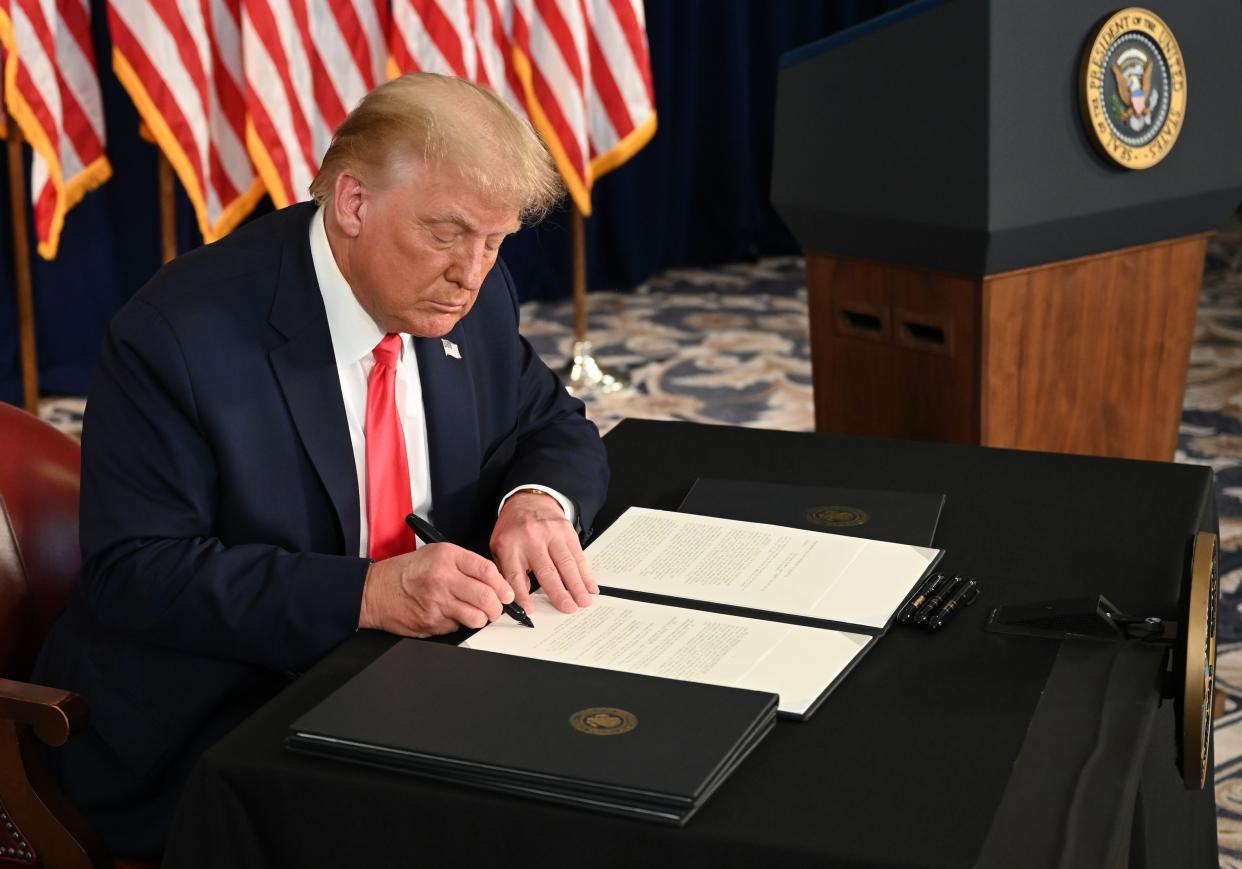Trump signs coronavirus relief executive orders as stimulus talks stall

On Saturday, US president Donald Trump tried to assert executive powers by signing four orders on coronavirus economic relief, after talks with Congress broke down.
One of the actions will provide as much as $400 (£307) a week in enhanced unemployment benefits, after the White House and Democrats were unable to reach an agreement on a stimulus bill this week.
The president is hoping to pay for the temporary unemployment add-on by using, $44bn in previously approved disaster aid for US states.
Trump’s move to take matters into his own hands, drew criticism from the Democrats, and some of the measures could face a legal challenge as the US Constitution gives Congress authority over federal spending.
The other three executive orders were “assistance for renters,” a memorandum on a payroll tax holiday for Americans earning less than $100,000 a year, and a memorandum on deferring student loan payments.
READ MORE: US imposes sanctions on Hong Kong chief exec Carrie Lam
Trump’s order would also suspend collection of payroll taxes, which pay for Social Security and other federal programmes.
Democratic presidential candidate and former vice president, Joe Biden, called the measures “half-baked” and accused Trump of putting Social Security at “grave risk” by delaying the election of payroll taxes that pay for the programme.
in May, the Democratic-majority House of Representatives passed a coronavirus support package, which the Republican-led Senate ignored.
Previously, the Trump administration said that they didn’t want to continue the $600 supplement, which expired without replacement on 31 July because it would “disincentivize” people's return to work.
READ MORE: Trump steps up Chinese tech war with new TikTok and WeChat executive order
House speaker Nancy Pelosi and Senate Minority leader Charles E. Schumer called on Republicans and Trump to “return to the negotiating table.”
There are still disagreements between both parties, after 11 days of talks, over how much to spend on COVID-19 aid. The Democrats, who control the House are asking for $3.4trn, and the Republicans, who control the Senate, seek to keep the stimulus under $1trn.
Under the US Constitution, powers to collect taxes, spend money and write laws rest with Congress.
The US has been struggling to control coronavirus infections, with the country marking the grim milestone of five million cases. The pandemic saw tens of millions of Americans lose their jobs.


